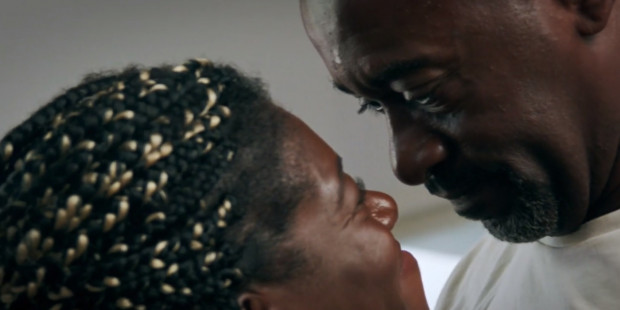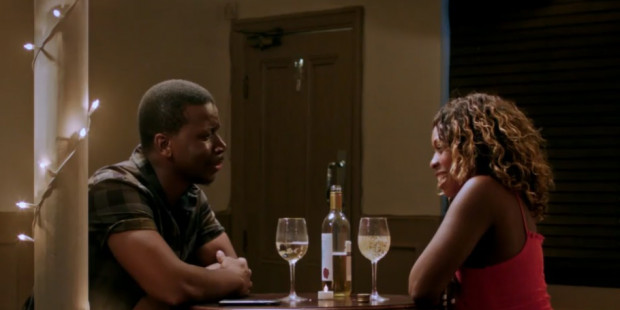Storytelling is a great gateway to exploring and understanding dilemmas people face in love, life, sex and living with HIV. It enables us to explore why we may act in certain ways in situations and the emotions we might go through, as well as the impact of our actions on ourselves and those around us. It can be enlightening to see just how complex the choices we often face can be.
Their Story, Your Choice is a series of interactive films where viewers make choices for the characters. There are unexpected twists and some surprising results, with a guarantee of learning something along the way.
Project objectives
The films were created to achieve two objectives:
- To reduce HIV-related stigma in Black African communities.
- To raise awareness of how sexuality-related stigma negatively impacts the health of Black and Asian gay and bisexual men.
The making of the films
One of the things that makes the films special for us is that they were made with the involvement of members of staff, consultants, community contributors and filmmakers who identified as Black.
The concept was initiated by Takudzwa Mukiwa, a Terrence Higgins Trust member of staff, who had experience of using interactive theatre to explore stories around HIV.
'Having experienced the richness of dialogue and discussion that is generated by interactive theatre when discussing social issues that can sometimes be complex, I thought the interactive film was worth a try to talk about HIV stigma. The main reason we went for interactive films was to try to do something that could be watched by many people, anywhere and at any time, which we wouldn’t have managed with live theatre.'
Terrence Higgins Trust engaged Brown Boys Productions, led by the experienced director Leon Lopez, to produce the films. The stories were developed through focus groups and conversations with people from Black communities, with the production team gathering different experiences and perspectives on the subjects the films explore. Community members were continually consulted as scripts were written and the final edits were agreed.
There are four films that cover a range of themes that include:
- Exploration of the right time to tell your partner or someone you are dating that you have HIV.
- Managing relationships.
- Issues faced by gay and bisexual men in Black communities.
What impact do they have on the community?
The films have been promoted via social media and through workshops. Highlights from these activities include:
- Around 30,000 people have watched to the end of a storyline
- Over 1,100 shares of the films on social media
- Over 100 HIV self testing kits ordered after watching the films
Bakita Kasadha is an HIV activist and writer who was a consultant on the making of some of the films. She said: ‘The stories are very real and they are very human. I chose to be involved in this film project because it speaks truth to the everyday experiences of Black people living with HIV.
‘These stories will be met with a range of reactions and emotions, but most importantly I hope that you’ll learn something new and that you’ll be pleasantly surprised. There are lessons to be learned on all sides, whether you know your HIV status (and you are HIV positive or negative) or do not know your HIV status yet.
‘HIV can affect anyone, but it affects Black African communities disproportionately more and we are more likely to have a late HIV diagnosis. It’s essential that we update ourselves on the realities (and the myths) so that we can better support our loved ones who may be living with HIV, take preventative measures to look after our health and so that we remember that life is still worth living after an HIV+ diagnosis.’
Some comments from viewers:
- 'Just watched Josh and Simone’s story on YouTube and did each possible choice. Thanks for that. I didn’t know much about HIV before and I’ve learnt quite a lot just from that story.'
- 'It's about time really the stigma came down on this, nobody wants it of course but it's not the death sentence it once was, they can even stop you passing it on if you’re diagnosed early!'




